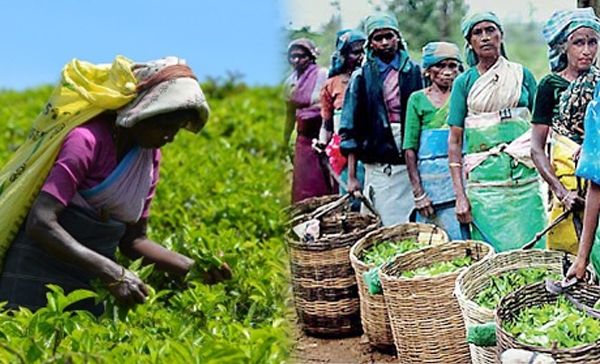The UN Special Rapporteur on contemporary forms of slavery delivering his report to the UN Human Rights Council raised concern about the living conditions of Sri Lankan workers, especially in tea plantations.
Tomoya Obokata, the UN Special Rapporteur on contemporary forms of slavery speaking to the 51st Regular Session of Human Rights Council said one of the main concerns in Sri Lanka was the living conditions of Sri Lankan workers.
“In a tea plantation, for example, I was disturbed to learn that women generally have to work twice as long as men and under the same salary due to the low wages of plucking tea leaves,” he added.
The UN Special Rapporteur said that he also found that cast-based discrimination persists in some areas of the country where workers experience similar obstacles, in addition to identified indicators of forced labor in the garment industry and domestic work, among others.
“A major issue of concern is sexual harassment and violence against female workers which are not often reported due to fear of reprisals and a lack of trust in existing complaints mechanisms,” he said adding that many workers are also exploited by microfinancing companies as their low wages do not align with the rising cost of living in Sri Lanka.
The UN Special Rapporteur stressed that furthermore needs to be done to protect Sri Lankan nationals who travel abroad to work.
“I discovered that Sri Lanka diplomatic commissions are not always well equipped to protect Sri Lankan migrant workers who have been exploited and there is scope to improve reintegration and support programs,” said the UN Special Rapporteur.
Sri Lanka also responded to the concerns raised by the UN Special Rapporteur on contemporary forms of slavery.
“The government of Sri Lanka is aware of the challenges faced by the Plantation sector employees from all ethnic communities and has taken a number of steps through the relevant line ministry to mitigate these challenges,” said the Sri Lankan representative.
He added that the remaining challenges are not linked to the origin or ethnicity of the employees but are common issues that the government is cognisant of, and is endeavoring to resolve.
“With regard to the reference made by the special rapporteur to the vulnerable financial status of rural women, the government of Sri Lanka wishes to state that several progressive steps are taken to alleviate poverty and indebtedness among women in rural areas,” said the representative.
“Regarding the concern expressed in the special rapporteurs report that the EU GSP plus benefits are not passed down to workers it must be emphasized that over the years GSP plus benefits have led to the growth of employment opportunities and this has helped to empower grassroots to level vulnerable communities including women, as well as to enhance their living conditions,” noted the Sri Lankan representative.
He added that the government of Sri Lanka accords high priority to the welfare of migrant workers, adding that Sri Lankan migrant workers can lodge complaints from any part of the world through the SL bureau of foreign employment and its online branch network in SL as well as through the e-connect app.


